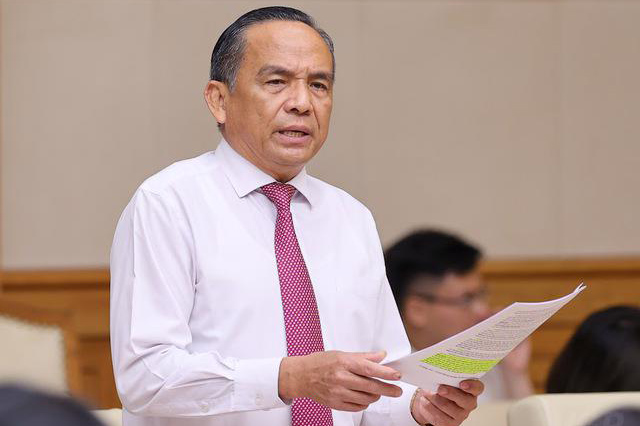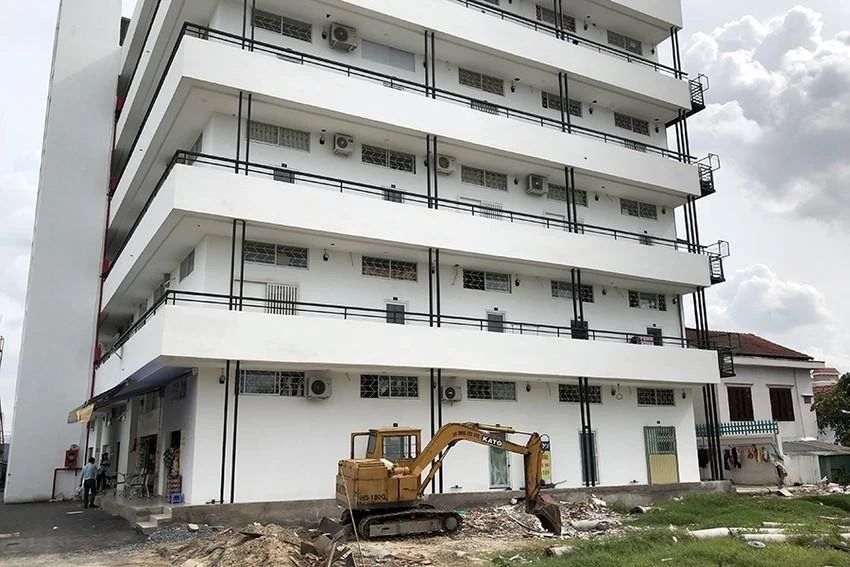Mini-apartments require a legal framework
Mini-apartments, according to Mr. Le Hoang Chau, Chairman of HOREA, provide cheap rental and purchase costs, making them acceptable for many sectors of society, including middle- and low-income urban inhabitants. They are regarded as critical housing solutions for the community.
Thousands of "mini-apartment" units may currently exist around the country, with many being built and growing popular in big cities to address the housing needs of a considerable segment of the population, particularly those with low incomes.

Management Instead of Prohibition
According to a Hanoi Power Company estimate, Hanoi alone has around 2,000 "mini-apartments." According to the Fire protection and Control and Rescue Police Department (PC07), there are about 42,256 rental units and room-sharing facilities in Ho Chi Minh City that are under state administration for fire protection and control. Among them, the police supervise 4,490 properties, including 103 that pose fire and explosive hazards, while commune-level People's Committees monitor 37,766.
Ho Chi Minh City was reported to have roughly 60,470 room-sharing and mini-apartment units, totalling over 560,219 rooms in 2018, comprising 38,800 room-sharing units with 357,246 rooms and 25,670 individual flats for rent with 202,973 rooms. According to current rules, these "room-sharing and mini-apartment" complexes are subject to severe fire protection and control restrictions.
Given that there are thousands of "mini-apartments" countrywide, housing tens of thousands of individuals with rental and purchase needs, we must make a conscientious and educated decision to embrace a "management instead of prohibition" strategy. This approach is comparable to that of many other nations, which permit such housing but need stringent regulations to guarantee fire safety and healthy growth.
Establishing a Legal Framework
Right now, there is an excellent opportunity to develop comprehensive, uniform, and unified legislative laws for the administration of "mini-apartments." This is because, in accordance with Central Party Committee Resolution 18-NQ/TW dated June 16, 2022, the 15th National Assembly in its 6th session scheduled for October-November 2023, is expected to review and pass several laws, including the Draft Law on Land, Housing Law, Real Estate Business Law, and other related laws, to ensure consistency and uniformity.
HOREA suggests stringent additional requirements for individual and household "single housing" units that can be converted into "mini-apartments." Furthermore, changes to the Construction Law, Investment Law, Real Estate Business Law, and Fire Prevention and Control Law are required to legally define and improve the administration of these units, assuring their safe and healthy growth.
This should contain clauses requiring project planning and adherence to legal laws governing the approval and acceptance of "mini-apartment" projects, as well as fire prevention and control methods. Regulations for enterprises renting or selling "mini-apartment" units should also necessitate compliance with real estate legal standards.
Furthermore, laws for managing and running "mini-apartments" should be consistent with those for traditional apartment complexes. The Ministry of Construction should include "technical standards for mini-apartments" in the "national technical standards for apartment buildings" to ensure strict supervision and safe development of "mini-apartments."
Over the years, the expansion of "mini-apartments" has been accompanied by flaws and limit ations in state supervision, resulting in a scenario where they have expanded "beyond control" and offered chances for dishonest business activities. The inadequacy and lack of uniformity in current legal restrictions has been a key contributing factor.

According to the HOREA, "mini-apartments" are not intrinsically defective byproducts of the previous real estate bubble, as some experts claim. Instead, they are critical societal housing possibilities, a demand that has endured for the previous 13 years. Even in the future, as the country seeks to become a high-income developed nation by 2045, there will be a need for "mini-apartments" owing to the existence of low-income urban residents, employees, migrants, and other groups in need of inexpensive accommodation.
As a result, the group suggests that the government "manage rather than prohibit mini-apartments." Rather than prohibiting them due to regulatory challenges, the immediate aim is to construct a complete and unified legislative framework to improve the efficacy of state administration over "mini-apartments," assuring their safe and healthy growth.








